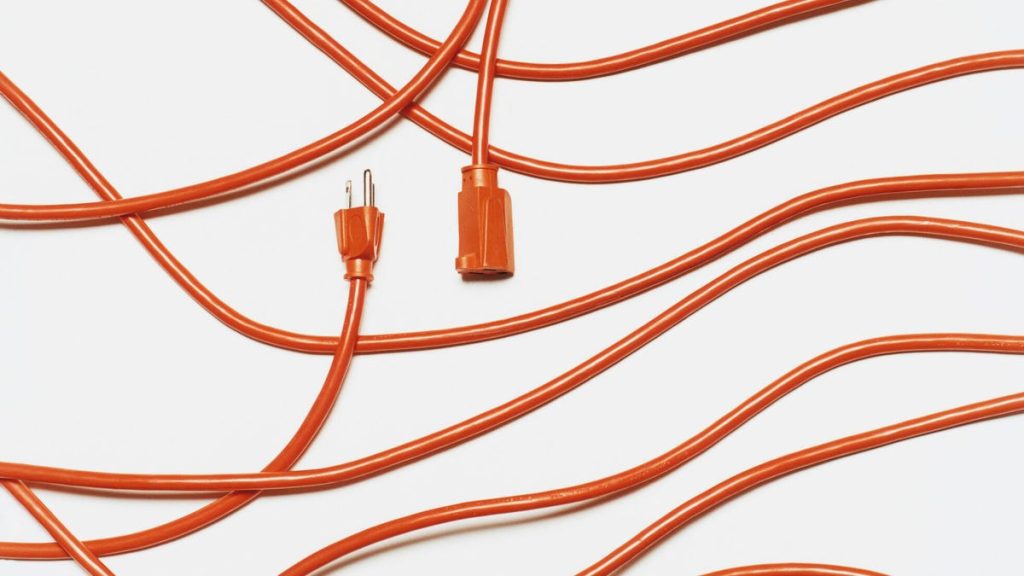Regardless of your home’s size, it often feels like there are insufficient electrical outlets available. While extension cords and power strips might seem like convenient solutions for connecting multiple devices, using them for certain appliances can pose significant safety hazards.
High-powered devices such as air conditioners and space heaters should never be connected to extension cords, power strips, or surge protectors. Although it may appear to be an easy workaround when outlets are scarce, doing so risks overloading the cord and potentially causing a fire. Paul Martinez, owner of Electrified NYC in Brooklyn, firmly advises against this: “No extension cords whatsoever,” particularly for appliances that operate consistently or utilize heating elements.
If you’re uncertain about which appliances require direct wall connections, we’ve compiled a list of seven critical devices to keep in mind. Understanding the safe usage of electrical outlets can help ensure your home is protected.
1. Air Fryers
Air fryers are excellent for quickly preparing meals but should never be plugged into an extension cord or power strip. Depending on their size, larger air fryers can consume up to 2,000 watts, making them a considerable fire risk when improperly connected. If counter space is lacking, it’s advisable to only use the air fryer when needed and to plug it into a dedicated outlet each time.
2. Microwaves
While many homes feature built-in microwaves, those without should remember that this is another heavy-duty appliance that should have its own dedicated circuit due to its substantial energy consumption.
3. Avoid Daisy Chaining Extension Cords
Connecting one extension cord to another—known as “daisy chaining”—is highly discouraged. This practice can lead to overheating circuits, causing the cords to get excessively hot and resulting in fire hazards.
4. Space Heaters
Electrical space heaters are notorious for their association with fires. According to the Consumer Product Safety Commission, portable space heaters were involved in approximately 1,700 fires each year between 2017 and 2019. Martinez warns against using extension cords with space heaters as overheating can easily occur, leading to fires.
5. Toasters and Toaster Ovens
Despite their smaller size, toasters consume a significant amount of energy, making them risky to connect to extension cords. Toaster ovens, in particular, require even more power, generally ranging between 1,200 to 1,400 watts. Martinez highlights the dangers of using extension cords for high-wattage appliances, stating that they may not withstand the required amperage and can result in fires.
6. Refrigerators
Although refrigerators consume less power—about 300 to 800 watts—they should still avoid connection via extension cords as they operate continuously. An extension cord can lead to malfunctions despite not posing an immediate fire risk.
7. Air Conditioning Units
Air conditioners, requiring substantial power to cool your space, must also be connected directly to a wall outlet. Martinez emphasizes the importance of selecting the right-sized AC unit for your area to ensure efficient operation and prevent potential overheating.
The Bottom Line on Extension Cords
Martinez reiterates a crucial point: never use extension cords with any appliances. Regular home extension cords are not meant for devices exceeding 15 amps (1,800 watts). Power strips and surge protectors should solely be used for electronics.



